The world has no shortage of weight loss programs, but too often they’re difficult to follow or aren’t effective.
People who need to lose weight, often battle with food cravings that sabotage their progress. But what if your food cravings are caused by your gut, and the best way to lose weight has nothing to do with counting calories or feeling deprived at all?
How the Gut Controls Food Cravings
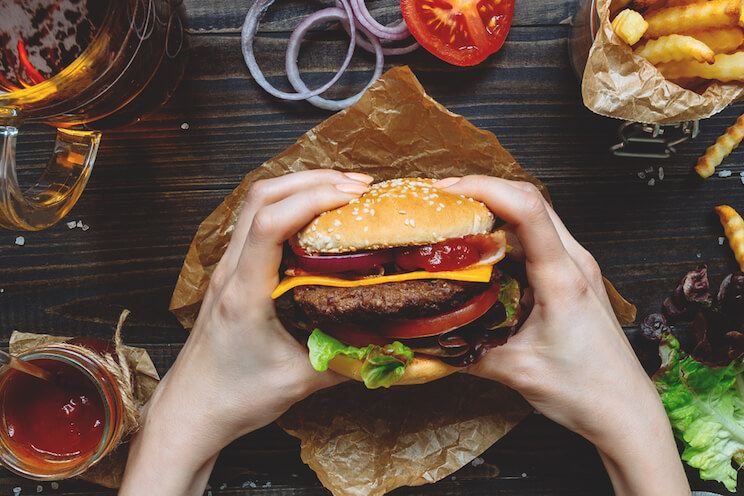
In recent years, the microbiome has gained popularity. The microbiome is the bacterial landscape of the gut where as many as 500 different bacterial species, and more than 30 trillion bacteria, live. (1,2) Your gut contains more bacterial cells than your entire body’s individual cells combined.
When we are born, there is no bacteria in the intestinal tract. Colonization begins during birth, and rapidly multiplies throughout the first two and a half years of life. By age three, a child’s intestinal flora and microbiome will look identical to an adult’s. (3) The biggest factors that influence gut bacteria from ages three and up are diet, lifestyle, and exposures to antibiotics and other potentially gut-altering prescriptions. [tweet_quote]The biggest factors that influence gut bacteria are diet, lifestyle, exposures to antibiotics and other gut-altering prescriptions.[/tweet_quote]
Within the gut there is an entire world of bacteria, with certain types residing in different areas, like a lively colony with various personalities and distinct neighborhoods. Certain types of bacteria thrive better on different nutrients than other bacteria might, and so within the gut there is an ongoing power struggle as to which bacteria will be dominant. Bacteria that are dominant can actually produce food cravings for things that will help them thrive and continue to reproduce. Your food cravings, in many cases, might literally be the product of the bacterial war happening within your gut. (4) Certain types of bacteria thrive well on carbohydrates, while others require dietary fiber or specific types of fat. When any one kind of bacteria begins to dwindle, they will send out cravings for their preferred nutrient, so that they can maintain their foothold.
Do you struggle with bloating, gas, constipation, or other digestive issues?
Get our FREE Guide to Healing Your Gut Naturally here!
While good bacteria, as well as the bad, will send out cravings, it’s the strong desire to eat junk food that seems hardest for most to resist. It’s also these cravings for fast food, sugar, and other highly processed ingredients, that tend to sabotage dietary efforts.
There’s a reason why, when starting a sugar-free plan like the Whole30 , most people do really well for the first three days before they get the sugar withdrawal headache or start feeling fatigued. That’s a sign of the sugar-loving bacteria being defeated, but they won’t go quietly. So, in a last desperate attempt, they send out intense cravings which can sometimes feel like withdrawal flu. (5)
Luckily, understanding the mechanism behind cravings can help take some of the power away. If you’re changing dietary habits to achieve specific health goals, and your dwindling “bad” gut bacteria are sending out cravings, there are certain healthy foods you can eat to curb these cravings.
Bottom line: The gut is home to a wide world of bacteria, some beneficial and some not so much. When they lack specific nutrients they need to thrive, they can produce strong cravings so that they’ll get what they need. Cravings don’t always originate in your head, and they aren’t always because you actually want or need that food!
How Certain Foods Change Your Gut
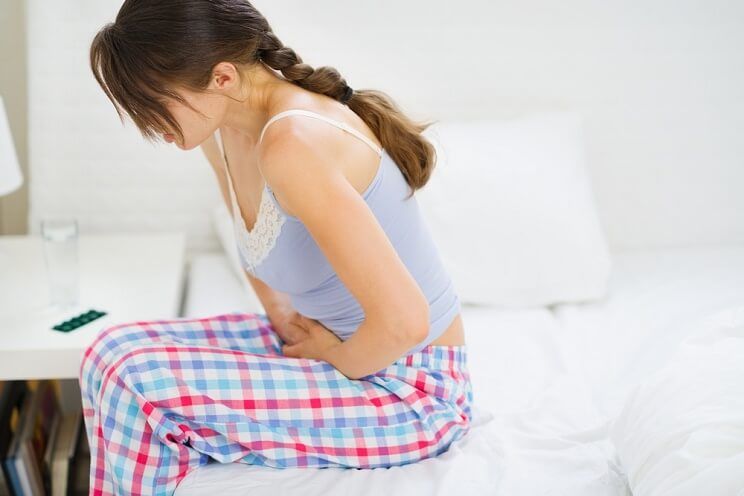
While the bacteria in the gut might send out cravings for what it needs to thrive, the foods we eat can also have a major say in changing the landscape of our gut – and much of our total body health with it.
The gut is referred to as the center of total health. Not only is it physically in the center of the body, but it has connections to every body system. Cells throughout the entire body can’t be nourished if food isn’t properly digested and absorbed. The bacteria in the gut plays a huge role in digestion and absorption, as well as in mood and immunity. The enteric nervous system is a part of the nervous system that actually shares space with the gut, so the bacteria within the gut have a direct line of messaging that goes straight to the brain. (6) [tweet_quote]The gut is referred to as the center of total health and has connections to every body system.[/tweet_quote]
While certain foods can boost good bacteria function, others can suppress it and even cause bad bacteria to thrive. For example, non-nutritive sweeteners, like artificial sugars, change the way that the body responds to glucose because they perturb gut bacteria and the microbiome balance, swinging it in favor of the bad bacteria. (7)
Antibiotics, while not strictly food, can also change the landscape of the microbiome almost immediately, and recovery time can be prolonged, with long-term effects remaining from just a single dose of antibiotics. (8)
For the most part, though, the gut can bounce back relatively quickly from dietary changes alone, sometimes recognizing positive dietary change in as quickly as 24 hours. (9)
The gut is far from a static landscape of bacteria and, too often, we have no idea about this bustling internal world. When we understand that the foods we eat are affecting our gut health on a daily and even hourly basis, this can give us clearer idea and direction on how to approach health needs, and even weight loss.
Bottom line: The gut is a vibrant world, teeming with trillions of bacteria. The foods that we eat can upset the bacterial balance, give the good guys a leg up, or impact our health long-term – in both positive and negative ways.
How to Balance the Gut for Weight Loss
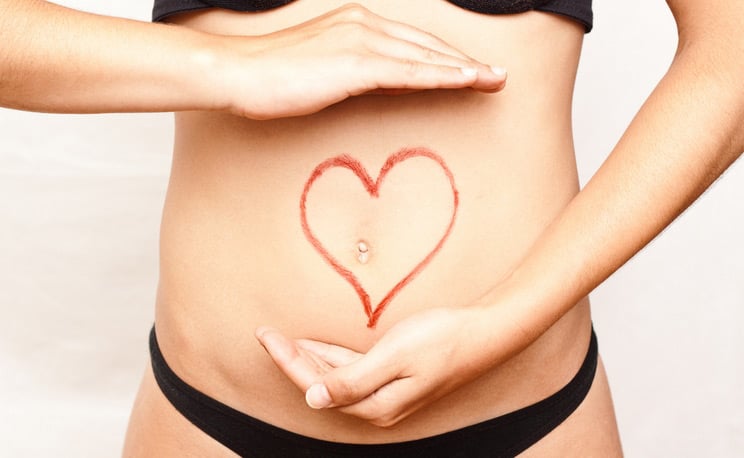
When it comes to eating for gut health, there is no shortage of advice. The microbiome and the gut are a hot research topic now, and every year we learn more about how foods and lifestyle can impact it. While there are numerous approaches to weight loss, balancing the gut to give the good bacteria an advantage is one that not only produces sustainable results, but positively impacts the entire body in greater ways than just the number on the scale.
Certain foods will improve or harm gut wellness, so if you want to lose weight, you need to know the foods to fill your plate with, as well as the ones that will set you back.
The 4 Worst Foods for Gut Health
1. Refined Sugar and Starches

At this point, it goes without saying that refined sugar isn’t really good for anyone. But it can be especially damaging to the gut microbiome because it feeds the bad bacteria and increases inflammation and leaky gut, which can further lead to bacterial imbalance. The greater the sugar intake, the more potential for long-term gut problems or chronic conditions. Not only can sugar lead to gut problems, but as a result of them, the immune system can begin to attack itself, leading to autoimmunity and permanent health conditions that are irreversible. (17)
2. Trans Fats

Fats that are highly processed and hydrogenated, like trans fats, are not fats that would naturally be found in nature. These fats are found in refined and junk-type foods, and regular intake can lead to increased inflammation within the gut, as well as the proliferation of bad bacteria. (18)
3. Artificial sweeteners
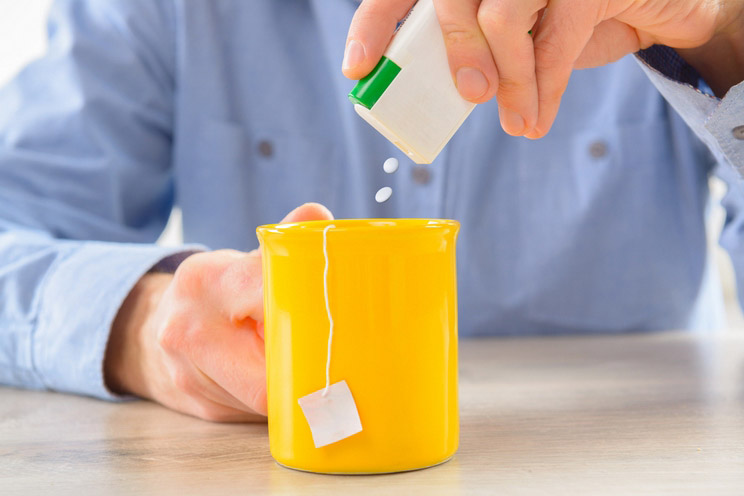
Artificial sweeteners are just that: fake. They’re not whole foods made of real nutrients, but rather, to the digestive system and the gut, a set of foreign particles. This fake food can disrupt the gut and lead to changes in the gut bacteria that reside there, and can even lead to metabolic disorders and other disease states. (19)
4. Alcohol

Regular alcohol consumption can alter certain types of gut bacteria, which can lead to increased inflammation and a disruption in healthy colon bacteria. Dysbiosis, or disrupted balance in bacteria, can result from numerous sources, but alcohol can definitely be enough of a trigger to initiate this gut imbalance.
Alcohol can suppress the good bacteria, and can help the bad bacteria to gain a stronger foothold. While moderate alcohol consumption won’t necessarily cause the same results, it’s important to note that the gut bacteria can change within a day or two based on dietary exposures, so in certain genetically predisposed or sensitive people, alcohol or other foods, could cause major issues for gut health. (20)
7 Foods to Balance Your Gut
1. Non-Starchy Vegetables
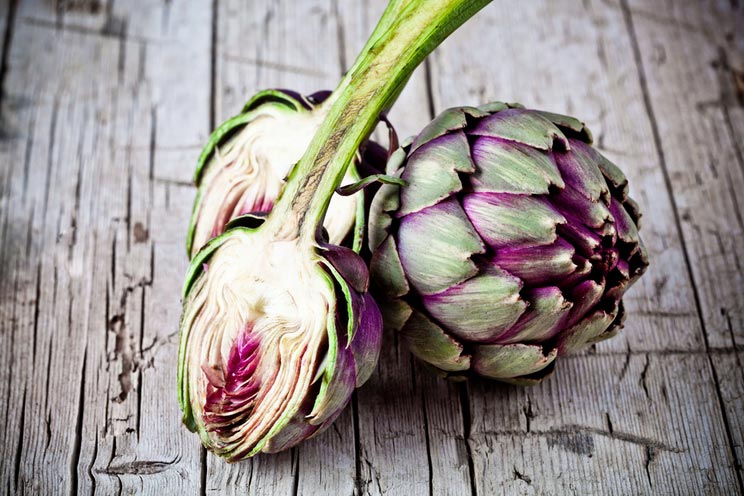
Fiber might not be digestible for us, but it feeds the good bacteria in the gut, helping them to proliferate. Vegetables like artichoke, asparagus, garlic, and onions are all non-starchy foods that are also referred to as prebiotics. They are the precursor to nourishing the good gut bacteria, and regular intake of them will help the gut to stay balanced. (10) Other vegetables, like those in the cruciferous family, are low in starch and high in nutrients that support natural digestive function – including feeding the good bacteria of the gut.
2. Pistachios & Almonds
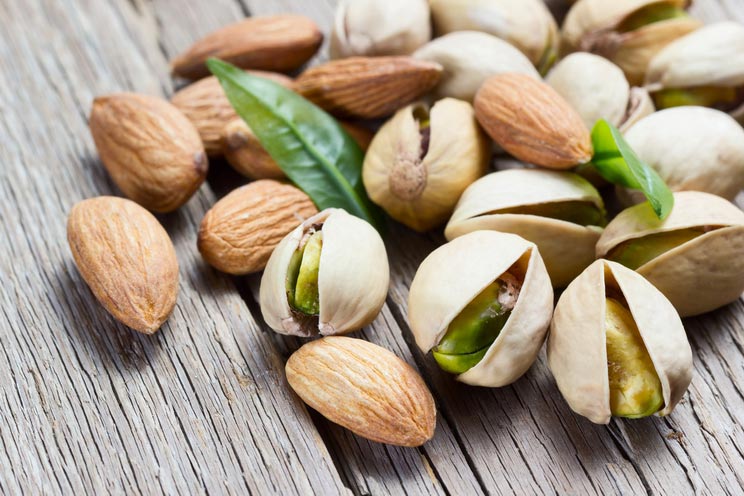
While not all nuts are created equal, these two kinds can have beneficial effects on good intestinal bacteria. The specific types of fiber that almonds and pistachios contain are preferred by certain strains of good bacteria, and can lead to positive gut-moderating effects. While it’s still important to balance Omega-6 fatty acids, like those found in most nuts, with plenty of Omega-3 fatty acids, including pistachios and almonds in a gut-healing food program is certainly a good idea. (11)
3. Fermented Foods
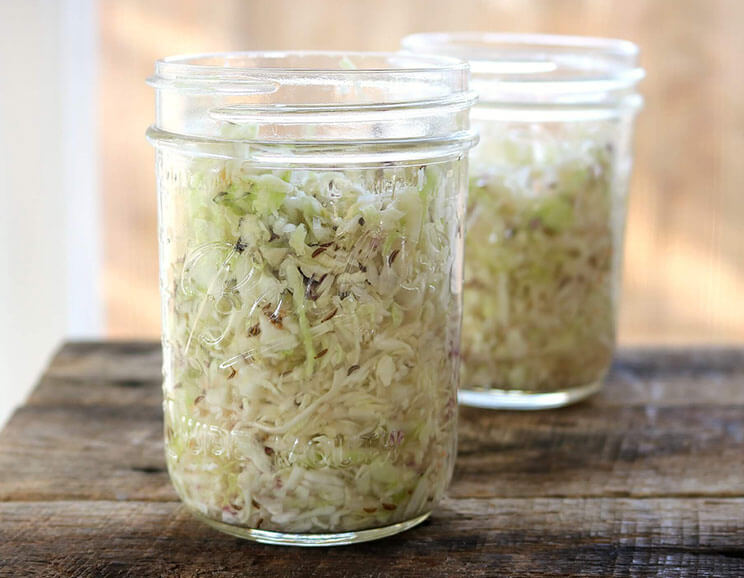
Fermented foods, like sauerkraut, kimchi, and miso, are all natural sources of probiotics, which is another name for the beneficial bacteria that live within the gut. While diet and lifestyle can go a long way in supporting the good bacterial balance, they need to be regularly replenished since they don’t live forever, even in the presence of prebiotics and a healthy diet. Fermented foods replace these good bacteria and ensure a vivid landscape of healthy bacteria. While the good bacteria don’t live forever, the bad types can last longer on their own, and can proliferate more easily without constantly being nourished by specific foods. Regular intake of probiotics and probiotic-rich foods are essential for a healthy gut. (12)
4. Dark Chocolate
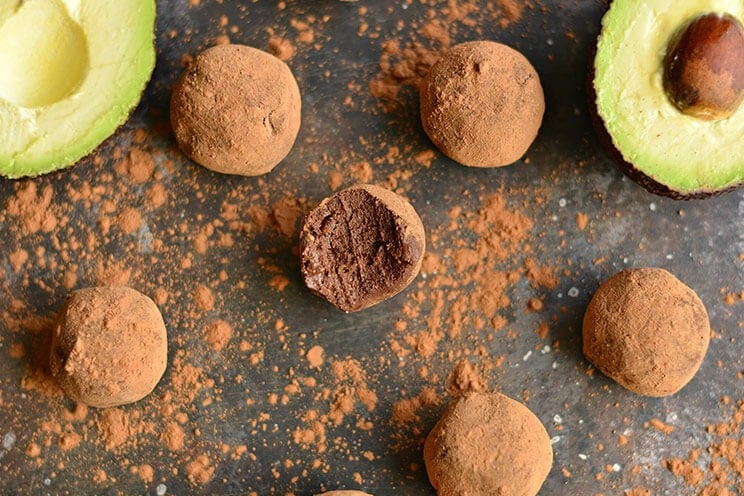
Pure dark chocolate can boost good gut bacteria and reduce stress hormones. When enjoyed in moderation, dark chocolate can be a healthy part of a diet that looks to balance gut health and promote weight loss. One study found that 40 grams daily of dark chocolate produced positive benefits for both stress and anxiety, and lead to improved mood and reduced stress hormone production. (13)
5. Plant-Based Oils
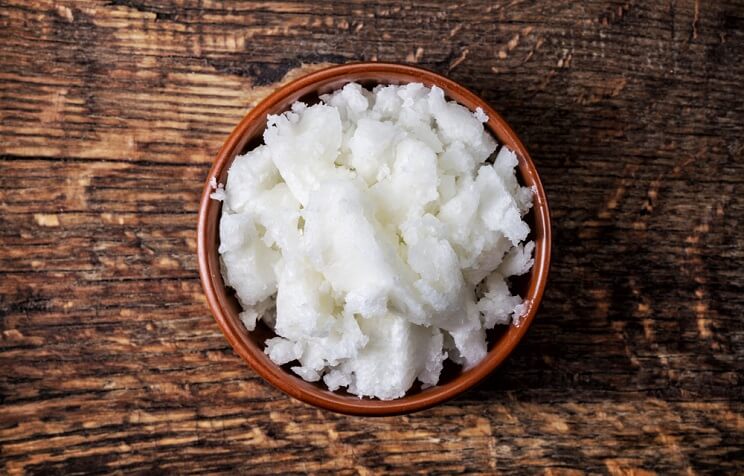
Extra virgin olive oil and coconut oil are two plant-based oils that nourish the good bacteria in the gut. When these fats are used in conjunction with high-quality animal and seafood fats, bad bacteria that thrive on hydrogenated oils and trans fats won’t be able to flourish, and an optimal gut balance will be restored. (14)
6. Omega-3 Fatty Acids
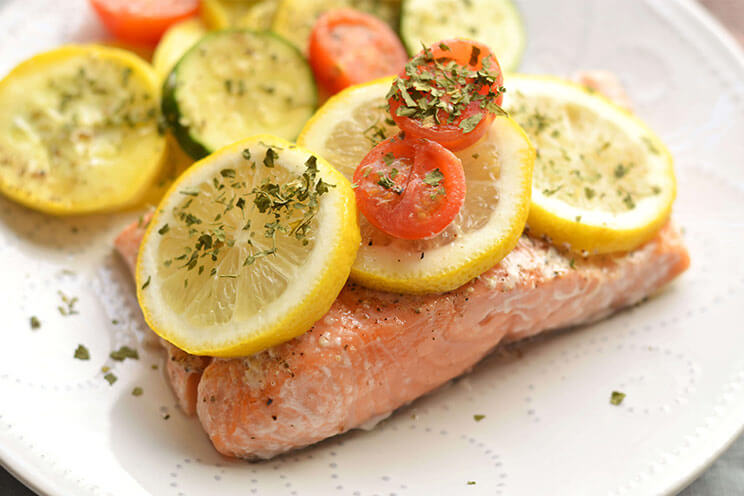
Not only do Omega-3 fats protect against inflammatory conditions throughout the body, they also protect the gut from inflammation and damage from excess bad bacteria. Eating a wide variety of foods rich in Omega-3 fatty acids can be therapeutic for gut imbalance as well as for any existing chronic health problems. (15) Paleo sources of Omega-3 fats include wild-caught salmon, cod liver oil, walnuts, and chia seeds.
7. Antioxidant Fruits
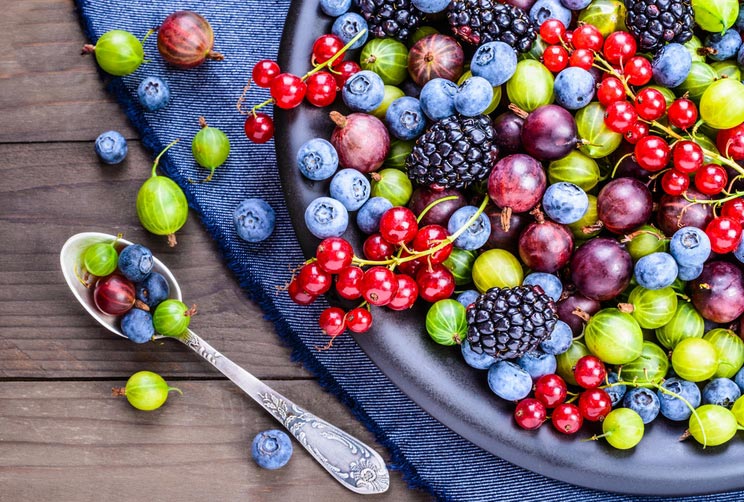
Certain fruits, especially those that are filled with antioxidants like berries, also contain beneficial fibers that feed the good bacteria in the gut. Not only does this lead to a balanced gut, but it can also be health protective against cardiovascular disease and other chronic conditions. (16)
Bottom line: There are certain foods that can help the good bacteria in the gut to grow, and there are foods that suppress it and allow bad bacteria to thrive. Diet and lifestyle are major influences on gut health and weight, and without a healthy gut, weight loss will be hard to sustain long-term. The benefits of having a healthy gut go far beyond the weight on the scale, but reducing body fat by feeding the right bacteria in the gut can be an excellent place to start.

(Read This Next: How Your Gut Affects Your Happiness (& 7 Tips to Heal It))


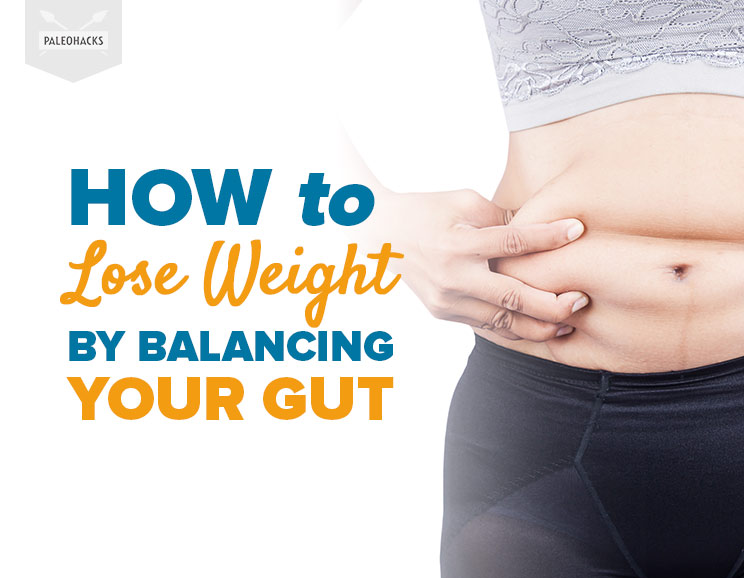
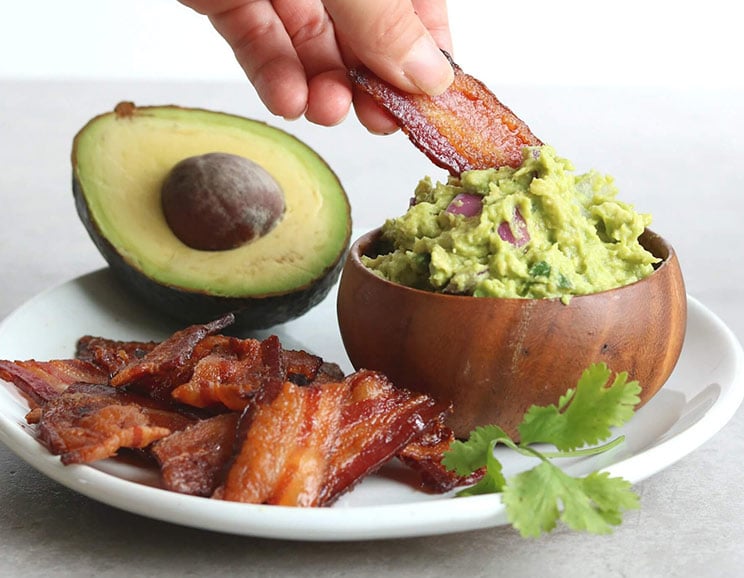 Bacon “Chips” and Thick Guacamole Dip
Bacon “Chips” and Thick Guacamole Dip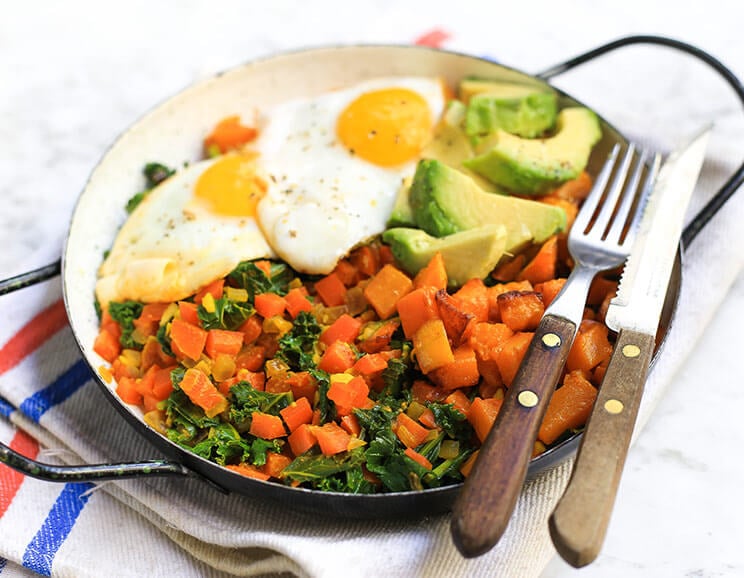

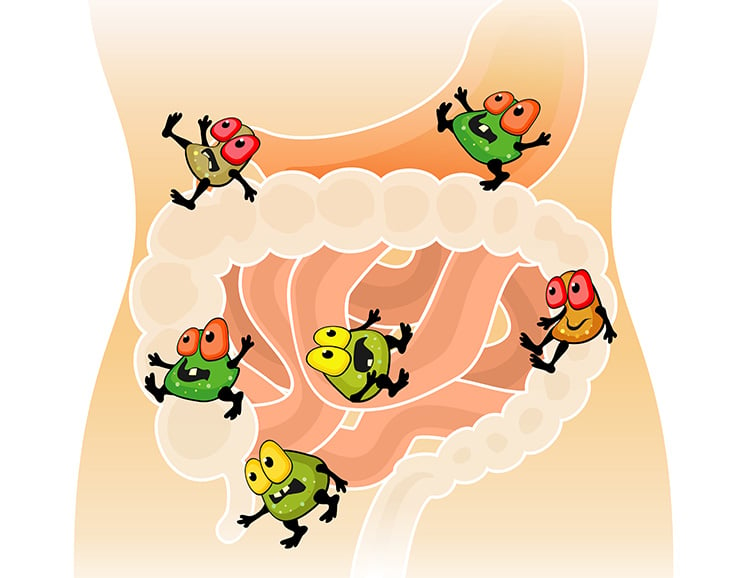
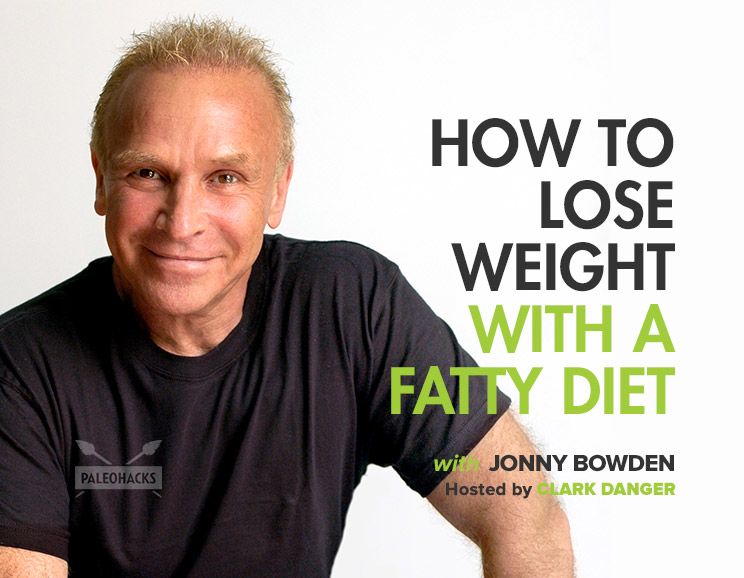

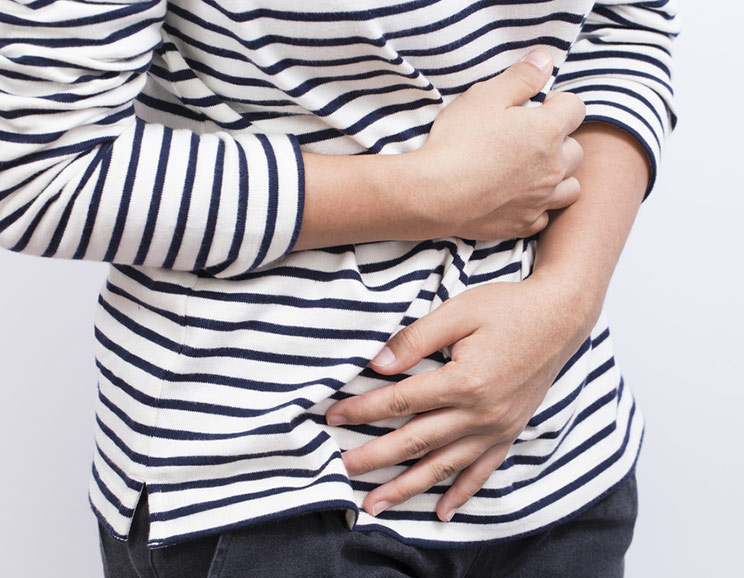
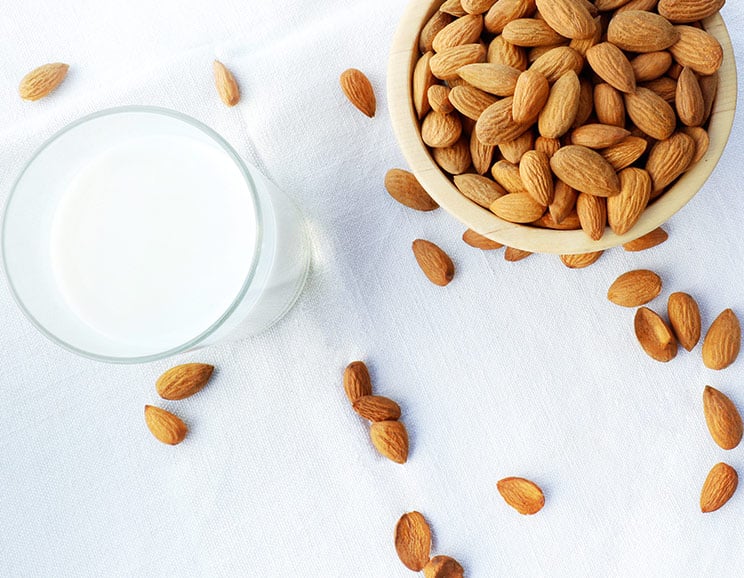



Show Comments